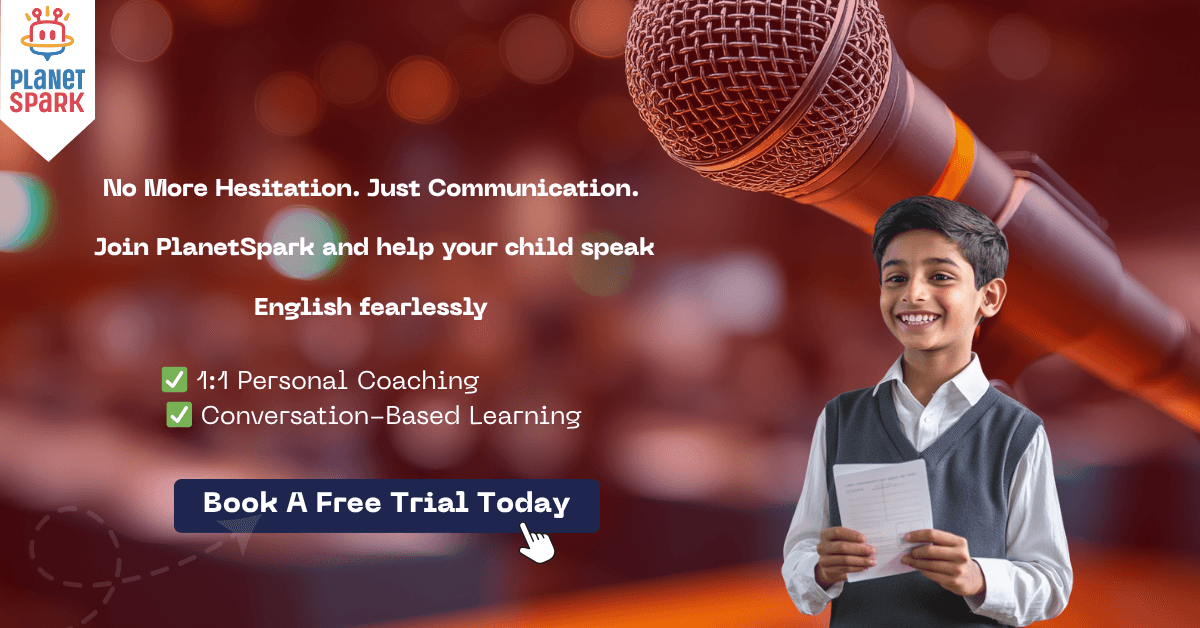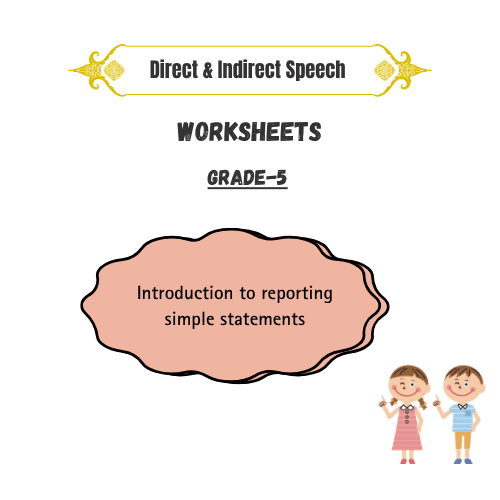60+ Public Speaking Topics Ideas with Tips for Beginners
Last Updated At: 3 Dec 2025
10 min read

Table of Contents
- Top 10 Public Speaking Topics for Students
- Top 10 English Speech Topics on Environment
- Top 10 English Speech Topics on Independence Day
- Top 10 English Speech Topics on Mother’s Day
- 2-Minute Speech Topics for Students
- Unique Speech Topics for Students
- Popular Elocution and Extempore Topics
- Presentation Topics for Students
- How to Find Interesting Public Speaking Topics
- Importance of Public Speaking for Children
- How PlanetSpark Helps Master Public Speaking
- Tips to Deliver an Effective Speech
- Conclusion
- Frequently Asked Questions
In today’s world, public speaking is no longer an optional skill it's essential. Whether your child is preparing for an Independence Day speech, a Teachers Day speech, or a school debate, learning how to speak confidently in front of an audience is a lifelong asset.
This blog provides a curated list of public speaking topics for students and kids, practical tips to deliver a compelling speech, and how PlanetSpark’s Public Speaking Course helps children shine on stage.
Top 10 Public Speaking Topics for Students
- The Importance of Discipline in Student Life
- Social Media: Boon or Bane?
- My Dream for the Future
- Time Management: A Key to Success
- The Role of Technology in Education
- Importance of Physical Fitness
- Cyberbullying and How to Prevent It
- Value of Reading Books
- Gender Equality in Modern Society
- Importance of Moral Values

Top 10 English Speech Topics on Environment
- Save Trees, Save Earth
- Say No to Plastic
- Global Warming: A Growing Concern
- My Role in Keeping the Planet Green
- Clean India, Green India
- How Recycling Can Change the World
- Wildlife Conservation
- Renewable Energy Sources
- Water Conservation in Daily Life
- Why Environmental Education Should Be Mandatory
From Classrooms to Global Platforms, We Get Kids Speaking Everywhere.
Join PlanetSpark’s Public Speaking League and let your child compete, connect, and conquer.
Start with a free demo class today!
Top 10 English Speech Topics on Independence Day
- What Freedom Means to Me?
- Stories of Unsung Freedom Fighters
- Role of Youth in Nation Building
- Patriotism Beyond August 15
- India at 75: Vision for the Future
- How India Earned Its Independence
- My Dream for a Stronger India
- Cultural Diversity in India
- The Importance of Unity in a Diverse Nation
- Independence Day: A Tribute to the Indian Constitution
Top 10 English Speech Topics on Mother’s Day
- Why My Mother is My Hero
- Lessons I Learned from My Mom
- A Letter to My Mother
- Celebrating Mothers: Unsung Heroes
- How My Mother Inspires Me Everyday
- The Importance of a Mother's Love
- A Day in the Life of My Mom
- Why Mothers Should Be Celebrated Every Day
- Supermoms: Managing Work and Family
- My Favorite Memory with My Mother
2-Minute Speech Topics for Students
- My Favorite Book
- A Person I Admire
- Why Kindness Matters
- My Pet and What It Taught Me
- If I Could Travel in Time
- Importance of Cleanliness
- Why I Love My School
- The Magic of Smiling
- One Habit That Changed My Life
- Should Exams Be Abolished?
The list is not over yet, find 30 Best 2-Minute Speech Topics for Students to practice.
1-Minute Speech Topics for Students
Even one minute is enough to leave an impression if you're well-prepared. Try these quick and impactful topics:
My favorite book
A quote I live by
One invention that changed the world
Importance of saying “thank you”
My favorite teacher
A moment that changed my life
Why I love my country
With PlanetSpark’s body language and voice modulation training, kids can make every second count even in a 1-minute speech.
Your Child’s First Standing Ovation Starts Here.
Give them the tools to speak with clarity, passion, and confidence join PlanetSpark today!
Book for a free demo class today
Unique Speech Topics for Students

- The Science Behind Laughter
- Should Homework Be Banned?
- How Music Affects Our Mood?
- Can Robots Replace Teachers?
- If I Were the Prime Minister
- Virtual Reality: Education of the Future
- Role of AI in Daily Life
- How to Make the World Happier
- Importance of Learning Sign Language
- How Video Games Can Be Educational
Get more speech topics on Education for Class 3 students
Popular Elocution and Extempore Topics

Elocution Topics:
- Education for All
- Importance of Voting
- My Role Model
- The Value of Time
- India’s Space Missions
Extempore Topics:
- What if there were no mobile phones?
- Describe your ideal school
- Is money everything in life?
- Life without social media
- Should children have social media accounts?
Presentation Topics for Students

- Internet Safety for Kids
- The History of the Indian Flag
- How the Brain Works
- Incredible Indian Scientists
- Importance of Yoga in Daily Life
- My Favorite Festival
- How to Be a Good Friend
- Importance of Teamwork
- Climate Change: What You Can Do
- Top 5 Innovations That Changed the World
Public Speech Topics for Students (General)

These topics are suitable for all student age groups and help build confidence in classroom presentations and competitions:
The power of positive thinking
Why reading books is better than watching TV?
Leadership lessons from Mahatma Gandhi
My vision for India in the next 25 years
Is honesty still the best policy?
Impact of technology on friendships
The role of youth in environmental change
Public Speech Topics for High School Students

High school students are ready for deeper topics that test their critical thinking, logic, and emotion. Here are some great examples:
Should uniforms be banned in schools?
Social media and mental health
What it means to be truly educated
Should teenagers have part-time jobs?
The pressure of academic performance
Can artificial intelligence replace human jobs?
Importance of emotional intelligence in schools
These are great unique speech topics for students aiming to build strong debating and persuasive skills.
How to Find Interesting Public Speaking Topics
1. Know Your Audience
Understanding your audience is the first step. Think about their age group, interests, and the occasion. For example, if you’re speaking to school students, you could talk about “Should homework be banned?” For working professionals, something like “How AI will shape the future of jobs” would be more suitable.
2. Choose Topics You’re Passionate About
Your interest in the topic reflects in your speech. Think about what excites you, what makes you emotional, or what you often talk about with friends. Passionate speakers are always more engaging. Topics like mental health, environmental sustainability, or women in leadership are impactful when spoken from the heart.
3. Stay Updated with Current Trends
Current affairs, social media trends, and recent innovations can give you fresh and exciting ideas. Browse news apps like Google News or BBC, check trending hashtags on Twitter and Instagram, or watch TED Talks for inspiration. For instance, “Is social media making us lonely?” or “The rise of electric vehicles” are timely and engaging topics.
4. Explore Categories
Sometimes, it helps to think within broad themes. In technology, you might explore topics like the future of AI or cyberbullying. In education, you could speak on the pros and cons of online learning. Environmental themes might include climate change or the water crisis. Social issues could involve gender equality or freedom of speech. Motivational themes include never giving up or the power of kindness.
5. Ask Questions
Framing your topic as a question naturally draws attention. Questions like “What if humans lived on Mars?”, “Why do we fear public speaking?”, or “How can we create a better school environment?” can intrigue your audience and lead to meaningful discussions.
6. Use Topic Generators and Brainstorming Tools
If you’re stuck, use brainstorming tools to generate ideas. ChatGPT can help, but you can also explore Google Trends, Pinterest, or online topic generators like Portent Idea Generator or HubSpot’s Blog Topic Generator to spark new thoughts.
7. Look at Past Successful Speeches
Browse famous TED Talks or past debate topics from schools and competitions. You’ll find a variety of perspectives and themes. Some interesting examples include “What school doesn’t teach you about failure” or “The power of saying ‘No’”.
8. Talk to Others
Sometimes the best ideas come from simple conversations. Ask your parents, teachers, or friends what kind of topics they would love to hear. Their suggestions might give you angles you hadn’t considered.
Importance of Public Speaking for Children
Public speaking does more than prepare kids for speeches and stage events. It:
- Builds Self-Confidence and Leadership: Public speaking helps children overcome stage fear and express themselves boldly. With each speech, their confidence grows. At PlanetSpark, activities like debates and storytelling build leadership skills by encouraging kids to take initiative and guide conversations.
- Improves Language Fluency and Articulation: Speaking in public enhances vocabulary, pronunciation, and sentence flow. Through voice modulation drills and daily speaking practice, PlanetSpark helps kids become fluent, clear, and expressive communicators.
- Boosts Critical Thinking and Structuring Abilities: Creating a speech teaches kids how to think logically and structure ideas effectively. PlanetSpark’s TED-style training helps them organize thoughts with clarity and build strong arguments useful for academics and real-life problem solving.
- Enhances Social Presence and Emotional Intelligence: Children learn to read body language, use eye contact, and adjust their tone for impact. With global peer interactions and performance feedback, PlanetSpark nurtures confident speakers with empathy and social awareness.
There are 7 Insightful points that you can't miss about Public Speaking while mastering the skill.
How PlanetSpark Helps Master Public Speaking
PlanetSpark’s Public Speaking Program is the go-to solution for transforming shy kids into confident speakers.
- 1:1 Coaching by Certified Experts: Every child gets individual attention, personalized correction, and expert mentorship.
- TED-Style Training Modules: Children are taught to deliver speeches like TEDx speakers compelling, structured, and impactful.
- Global Competitions & Peer Learning: Kids interact with learners across 13+ countries in live storytelling, debates, and public speaking leagues.
- Video Feedback Loop: After every speech, children receive recordings of their performance, which they watch and review with their coach for detailed feedback.
- Confidence & Progress Trackers: Visible milestones, speech rubrics, and growth charts keep kids motivated and parents involved.
Tips to Deliver an Effective Speech
Whether it’s an Independence Day speech or a classroom debate, follow these steps:
Start Strong – Use a question, quote, or personal story.
Structure Clearly – Begin ➝ Middle ➝ End with a clear message.
Practice Voice Modulation – Emphasize key words.
Use Gestures – Maintain good posture and eye contact.
End with a Call to Action – Ask the audience to reflect or take action.
At PlanetSpark, children practice each of these aspects through guided speech simulations, mock presentations, and AI feedback tools.

Conclusion
Public speaking is more than just an academic skill, it's a life skill. Whether your child is preparing a heartfelt Independence Day speech, a meaningful Teachers Day speech, or exploring unique speech topics for students, every opportunity to speak builds courage, clarity, and confidence.
By exploring the right public speech topics for kids and students, you’re giving them the chance to develop not just their voice but their personality, leadership, and thinking ability.
Frequently Asked Questions
Q. What are some good public speech topics for students?
A. Some good public speech topics include “The Power of Positive Thinking,” “Social Media: Boon or Bane,” “Climate Change and Its Impact,” “Importance of Mental Health,” and “Leadership in the 21st Century.” These topics help students explore ideas while building communication skills.
Q. What are some easy speech topics for school kids?
Easy and engaging topics for school kids include “My Best Friend,” “If I Were a Superhero,” “A Day Without Television,” “Why I Love My School,” and “My Favorite Festival.” These help young children express themselves with comfort and confidence.
Q. What is the ideal length for a 1-minute or 2-minute speech?
A. A 1-minute speech typically ranges between 120–150 words, while a 2-minute speech is usually around 250–300 words. It should include a short introduction, main idea, example or story, and a clear conclusion.
Q. What is the best way to prepare a speech for students?
A. To prepare a great speech, students should first choose a topic they enjoy or feel strongly about. Then they should structure it with a clear beginning, middle, and end. Practicing aloud, using expressive voice and gestures, and timing the speech helps build confidence.
Q. Why is public speaking important for students and kids?
A. Public speaking helps develop confidence, communication, critical thinking, and leadership skills. It also improves vocabulary, clarity of thought, and the ability to express ideas effectively in both academic and social settings.
Download Free Worksheets
Personalized Communication Report
Record a video to get a AI generated personalized communication report for your child
Select Learner's Class

Hi There, want to try these
tips for your child with
LIVE with our expert coach?
Let's check your child's
English fluency



